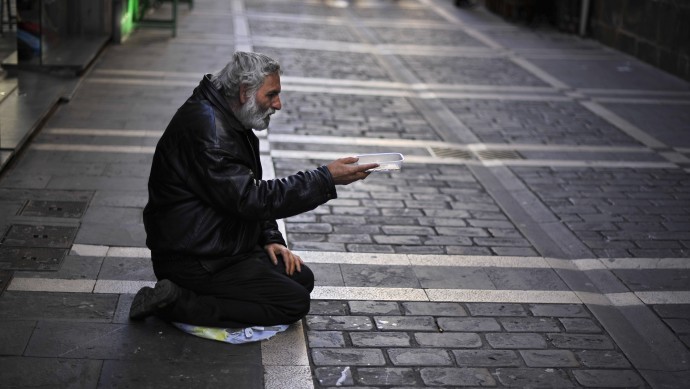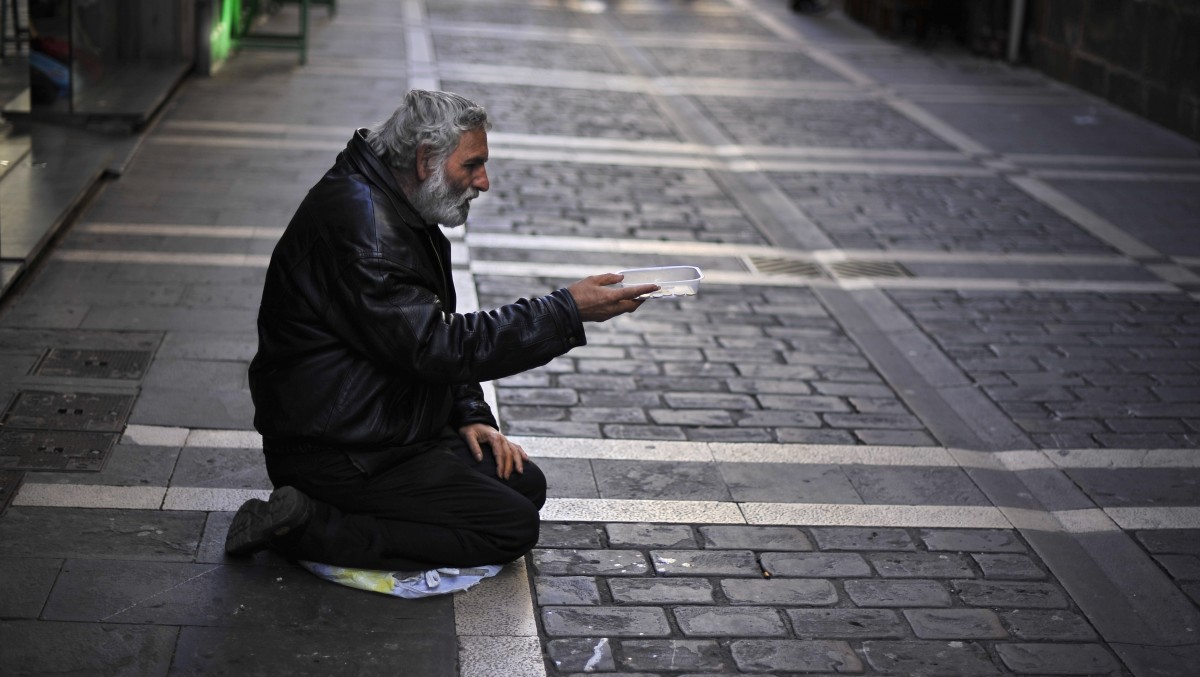
“The European Union … clearly is not one of ‘the champions of peace’ Alfred Nobel had in mind and described in his will as ‘the person who shall have done the most or the best work for fraternity between nations, for the abolition or reduction of standing armies and for the holding and promotion of peace congresses.’”
(NEW YORK) MintPress – In its Nov. 6 letter to the Nobel Foundation, excerpted above, the International Peace Bureau (IPB) claimed that awarding the Nobel Peace Prize to the 27-member EU last month was “unlawful” and asked the foundation to withhold the $1.19 million prize — a request that was immediately rejected.
The Norwegian Nobel Committee, which selects the winner from nominations submitted by committee members and others, announced the award on Oct. 12, praising the EU “for over six decades contributed to the advancement of peace and reconciliation, democracy and human rights in Europe.”
The IPB, a global network of 320 peace organizations, which itself won the Peace Prize in 1910 for “for acting as a link between the peace societies of the various countries,” disagrees with that assessment.
The EU “is not seeking to realize a demilitarization of international relations,” it stated, adding that its members “condone security based on military force and have waged wars rather than insisting on the need for alternative approaches.”
It continued, “The latest prize to the EU may even be seen as directly contradicting the purpose to reach demilitarized international relations, the purpose Alfred Nobel had with his prize.”
So far, the Nobel Foundation remains undeterred. According to Geir Lundestad, secretary of the Norwegian Nobel Committee, the objections have been noted “and won’t impact the evolution of the prize.”
Growing opposition
Still, criticism of the prize recipient is coming from other corners as well. Canada’s Centre for Research on Globalization, publisher of the website Global Research, is supporting the IPB position, stating in a press release that “[t]he EU is not a peace project.”
The CRG argues that “more than 25 million people across the EU are struck by mass unemployment” and that countries such as Greece and Spain “are being battered with welfare cuts and misery to an extreme extent.”
It also asserts that together the European Commission, the European Central Bank and the International Monetary Fund threaten the “most crisis-ridden member states” with funding cuts for schools, pensions and hospitals.
State of the Union
The CRG may have a point. A report by the independent European Court of Auditors (ECA) on Tuesday showed that while spending cuts are a critical political issue during the current economic crisis, the EU is wasting several billion euros a year.
It revealed that errors in payments had risen to 3.9 percent of the EU’s $202.7 billion 2011 budget and that there were “too many cases of EU money not hitting the target or being used sub-optimally.”
Each member of the EU contributes about 1 percent of its GDP to its budget, which is then invested on various projects around the region. About 80 percent of the money is redistributed back to the member states for spending and 20 percent is under control of the European Commission.
“The court has found clear evidence where European Union spending could be better managed,” said ECA President Vitor Caldeira as he called for “improving accountability.”
Added Audit Commissioner Algirdas Semeta, “A little more effort by member states to control projects properly and retrieve misused funds could go a long way, particularly in this time of economic difficulty.”
European parliamentarian Marta Andreasen of the U.K. Independent Party in Britain pointed out that it was the 18th year in a row that the ECA refused to give the EU “a clean bill of health.” “Worse still, the ‘error rate,’ shorthand for unaccounted money, is on the rise,” she said in a statement.
The EU will hold a special summit later this month to set the 2014-2020 budgets.
Peace Prize polemics
This is not the first time the Nobel Committee has been chastised for its choice. It faced a barrage of criticism in 2009 after it gave President Barack Obama the Peace Prize when he had barely been in office.
In that instance, the Norwegian Nobel Committee announced the award on Oct. 9, 2009, citing Obama’s promotion of nuclear nonproliferation and a “new climate” in international relations fostered by Obama, especially in reaching out to the Muslim world.
In a USA Today/Gallup Poll conducted Oct. 16–19, 61 percent of American adults surveyed responded that they thought Obama did not deserve to win the prize, while just 34 percent said that he did.
Washington Post columnist Michael Gerson wrote that the committee members “have forfeited any claim to seriousness. Peace—the kind of peace that keeps people from being killed and oppressed—is an achievement, not a sentiment.”
A Los Angeles Times editorial said the committee “didn’t just embarrass Obama, it diminished the credibility of the prize itself,” and Thomas Friedman of the New York Times wrote, “It dismays me that the most important prize in the world has been devalued in this way.”
At least one columnist, though, agrees with the 2009 and 2012 decisions. “The Nobel Peace Prize was right on both occasions,” wrote Dennis Vest in USA Today.
“President Obama’s views and early actions were such a departure from that of George W. Bush, which the world recognized. The European Union is a beautiful thing that has seemingly put an end to the centuries-old European wars.”
The Nobel Peace Prize is scheduled to be presented on Dec. 10 to European Parliament President Martin Schulz, European Commission President Jose Manuel Barroso and EU President Herman van Rompuy.


